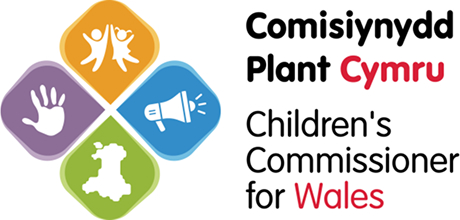Background
Policies and legislation on children in Wales are underpinned by the UN Convention on the Rights of the Child (UNCRC).
There are three specific pieces of legislation that place duties on public authorities here to make children’s rights a reality. They are:
- The Rights of Children and Young Persons (Wales) Measure 2011;
- The Social Services and Well-being (Wales) Act 2014; and
- The Well-being of Future Generations (Wales) Act 2015.
To support public bodies with these new duties, in 2017, the Children’s Commissioner for Wales, published ‘The Right Way: a Children’s Rights Approach in Wales’. It’s a practical guide to help public, and private sector, organisations to place children’s rights at the heart of all planning decisions and service delivery.
What is ‘The Right Way’?
The guide explains children’s human rights and their relevance for public bodies and other organisations. Included are five principles:
- Embedding children’s rights: putting children’s rights at the core of planning and service delivery.
- Equality and non-discrimination: ensuring that every child has an equal opportunity to be the best they can be.
- Empowering children: enhancing children’s capabilities as individuals so they’re better able to take advantage of rights, and engage with and hold accountable organisations and individuals that affect their lives.
- Participation: listening to children and taking their views meaningfully into account.
- Accountability: authorities should be accountable to children for decisions and actions that affect their lives.
The evaluation
We wanted to understand how effective the guide has been to support public bodies and others in changing their ways of working. This year, we decided to evaluate by aiming to understand:
- What work has been done to achieve the desired goal of The Right Way;
- What’s worked well and what have been the challenges;
- What’s changed as a result of The Right Way;
- What can be done to make sure The Right Way is sustainable.
We did this by:
- Looking at all the work of our office and the data gathered about our work;
- Surveying organisation who have worked with us on The Right Way;
- Holding focus groups with those who have worked with us on The Right Way.
30 organisations took part in the survey and 22 in the focus groups.
This work was undertaken by a Cardiff University PhD student, Katie Spendiff, on placement with us as part of her studies.
What we’ve done
Here’s a summary report outlining all we’ve done to uphold the principles of The Right Way as an organisation and how we’ve supported other public bodies to do the same.
What others think about The Right Way?
Here’s a summary of what people said about The Right Way:
“It’s [TRW] broad enough, but tangible enough to translate our ambition of doing what is good and right for children into action”.
“TRW offers an opportunity for consistency; to apply a unified and consistent approach across my organisation, and across my counterpart organisations in Wales”
“TRW has helped us to put in place structures to transform our value of listening to children and young people into action. We held focus groups with [4 national teams] and the children and young people involved in them, discovering the range of judicial approaches in our area alone were vast. By listening to children, young people, and staff, we were able to transform our services to meet the needs of those who used them. TRW changed the lens – children were not perpetrators who deserved punitive measures, but people who needed restorative support. This has led to the changing of policies that are deemed to be punitive.
“Official guidance and documents from the Officer of the Children’s Commissioner have been useful in gaining buy-in from our senior decision makers. Navigating all of the pressures of and demands of service provision requires a little more direct encouragement and Sally brings that. People see her name and they pay attention. It’s not my voice anymore but a strategy and resources and a Commissioner. We welcome that.”
From the survey and focus groups, it seems The Right Way:
- Provides a consistent and common approach to children’s rights
- Allows opportunities to collaborate, which was celebrated
- Provides practical support to understand and implement The Right Way
- Enables senior buy-in because of the Commissioner ‘badge’


